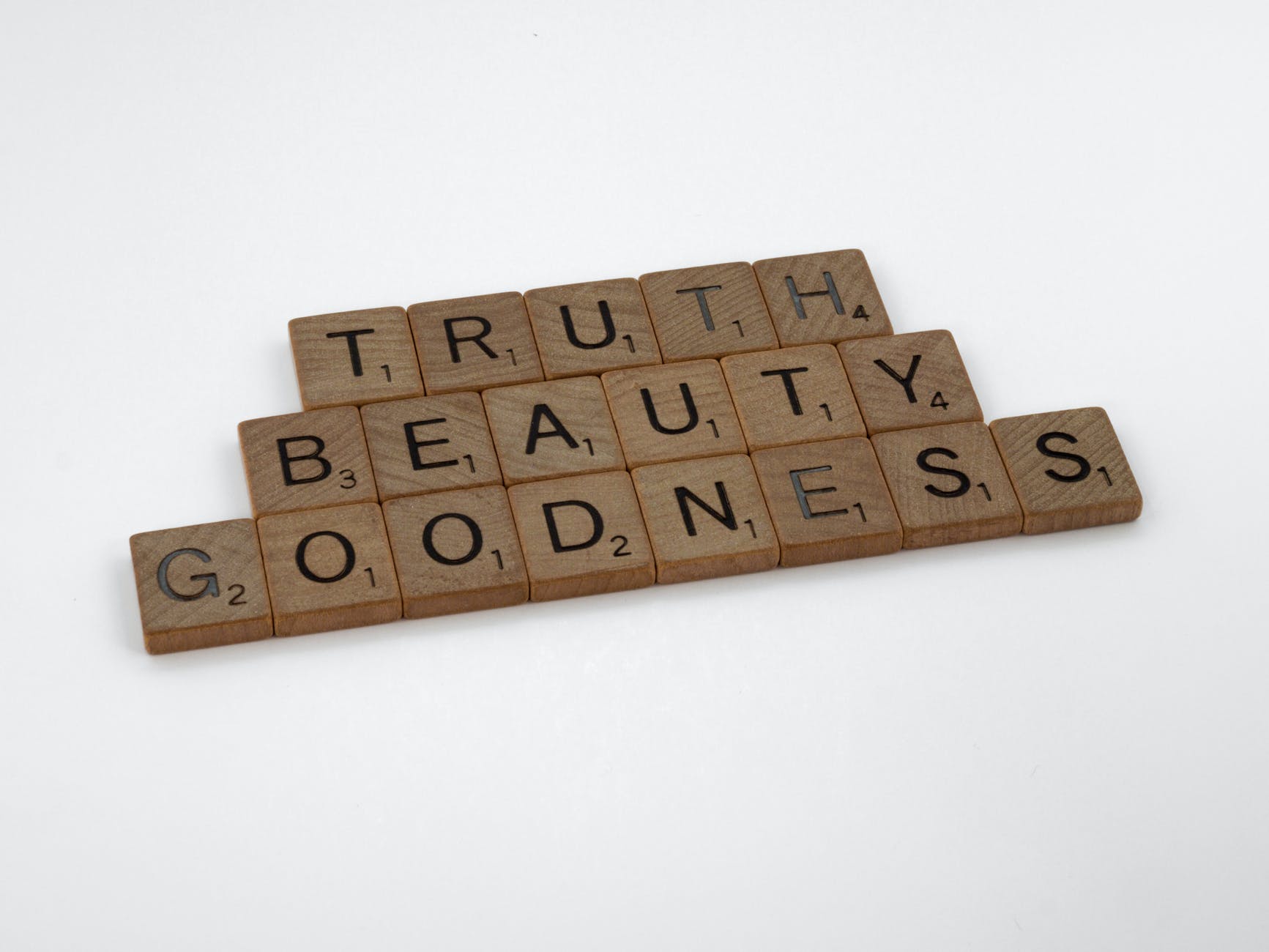Introduction
I have a habit of viewing people’s status updates on Whatsapp. A day does not pass without me viewing every “recent update.”
As I go through these updates, I notice some disturbing trends. One of those that have caught my attention in recent times is the unending call for people to love themselves.
I have seen believers and unbelievers pass around that admonition to everyone who cares to receive them. In most cases, this “self-love” is an admonition to single people, especially those who have either sought romantic relationships in vain or have experienced pain from the ones they have experienced.
The whole idea is “instead of looking for people to love you, start by loving yourself.” Some believe that these relationship-seekers often get hurt because they don’t love themselves first.
However, the admonition to love yourself presupposes that you hate yourself; at the least, it presupposes that such hatred is possible. To be fair, some people couch this admonition in comparative terms (love yourself more) rather than a mere admonition to love yourself.
Whatever it may be (love yourself more or love yourself), the underlying presupposition is that people can either hate themselves absolutely or hate themselves comparatively.
But do people hate themselves? Is self-love a biblical concept? Are we really to believe that one of our great problems is that we don’t love ourselves enough?
Do people truly hate themselves?
The two greatest commandments are to love God and our neighbors (Mathew 22:36-40). Apostle John dedicated a great deal of his epistles telling believers that one of the evidence they are born again, live in the light, know God, abide in Christ is that they love their brothers (1 John 2:3-6, 7-11; 3:11-20; 4:7-21).
Paul wants every Christian to “please his neighbor for his good, to build him up” (Romans 15:2)-an invitation to act like Jesus who did not please himself. We are to be devoted to one another in brotherly love (Romans 12:10) and honor one another above ourselves (12:10). The command to love our neighbor summarizes the whole law (Romans 13:9-10). We are to live a life of love (Ephesians 5:2)-a life exemplified for us in Jesus, who gave his life for us (1 John 3:16).
While the Bible is replete with commands for us to love our neighbors in general and our brothers in the faith especially, there is no single command to love ourselves.
Why is this command absent? It’s absent because one of the identity markers of sinners is that they are “lovers of themselves” (2 Timothy 3:2). We love ourselves, and we love pleasure more than we love God (2 Timothy 3:4). That right there is characteristic of every human.
Jesus said that the man who loves his life would lose it, and the one who hates his life will keep it for eternal life (John 12:25). When he said that, he was calling us from the former to the latter. Inherently, we love our lives (and that is why we are all children of hell apart from Christ), but Jesus calls us to a better way- the kernel of wheat must fall to the ground (verse 24). All our self-loves must be buried to produce many seeds-the kinds of seeds that characterize those who will keep their lives for eternity.
It’s Jesus’ death that finally frees people to “no longer live for themselves” (2 Corinthians 5:15); which means living for ourselves is the default position.
Why will God command us to love ourselves when one of the manifestations of our sinfulness is that we love ourselves instead of God and others? God commanded us to love who we don’t love-God and others.
So, where do we come up with the idea that people hate themselves?
Let’s take the extreme example of someone we claim hates himself. Say John graduated from school and could not find a job after five years. He is living in penury, his girlfriend ditched him, and his family considers him a failure.
After falling into depression, he went ahead and hanged himself. Voila!! Is that not evidence of someone hating himself to the point of suicide?
Not at all. That is evidence of someone who loves himself. If John does not love himself, he would not have cared if he had a job or not, lives in penury or not, keeps his girlfriend or not, the family respects him or not.
If John hated himself, he would have been happy and satisfied with his condition. His dissatisfaction with his joblessness (and all the attendant consequences) is because he loves himself. John loves himself so much that he cannot imagine himself being jilted by a girlfriend and disrespected by family. John is not a man without self-worth or self-love; he is a man who loves himself.
Or take the example of Mary. She is always sad that she is not as beautiful as Jane. Why will all the guys chase Jane when it is only one guy- the son of Belial of the community-that chases her? She is trying every weight loss regimen out there (that’s an exaggeration not because she does not want to try them but because she can’t keep up with those things even if she lived for 100 years). Mary is even considering surgery.
Is Mary not an example of someone who does not love herself? Say what? Who goes through all of those stress if she does not love herself? If she does not love herself, she would have been satisfied with her ugly and fat body. Why would you go through all the stress for a body you hate or don’t give a damn about?
When last did you stress yourself and spent yourself to a stupor over something you hated? Can you imagine someone spending #500k to buy PS5 that he hated or working late in the night dissatisfied with his business’ financial statements because he so much hates that business? What a hatred that is.
No one commits suicide or worry about their ugly face and body because they hate themselves. They do it because they love themselves.
If there is anything common to humanity, it is our self-centeredness.

Love or identity
The problem lies in identity, not self-hate. Motivated by our self-love, we ground our identity in the things we do or don’t have, whether that be money, job, beautiful face, car, or social status.
When we don’t have these things, we are sad because we believe the lack of them defines our identity. “I am that ugly lady no guy with at least one eye will date.” “I am the unfortunate guy who can’t get a job after five years.”
Remember that the reason we are bothered about our identity is that we love ourselves. Therefore, when we identify ourselves in this way and get sad or depressed, it is not self-hate working.
As long as we have tied our identity to the presence or absence of certain things, we will continue to have fits of anxiety, misery, and depression (wrongly interpreted as self-hate). But instead of dealing with the real problem, we put our armor on and do battle with a false enemy- self-hate.
The Bible has a different message. Every human should grant his or her identity in the image of God. What makes you valuable is that you are created in the imago Dei (image of God). You are God’s handiwork, and because God is a perfect craftsman, you are beautifully and wonderfully made (Psalms 139:14). You bear the image of the glorious God who made all things, rules over all things, and guides all things to their telos (purpose/end).
As long as you bear God’s image (which is as long as you are human), you are valuable.
But for us believers, it’s even more glorious. Being created in the image of God is the glory of the moon. Every believer is an adopted child of God and a co-heir with Christ (Romans 8:17). We don’t just bear God’s image; we are part of God’s family. That is the glory of the sun. We are united with Jesus, such that everything that Christ has belong to us.
Consequently, instead of rooting our identities in what we do or don’t have, we should be rooting it in the twin fact that we are God’s image-bearers and children. Whether you have a job or not, are the beautiful girl of the hood or not, fat or slim, you are God’s image-bearer and child.
Wealth, position, social status, marital status, job, or the world’s estimation of beauty no longer define you. Whatever you have or lack does not change your identity.
James encouraged the brothers of low estate (humble circumstances) to remember that they have a high position in Christ since they are seated with Him in heavenly places as co-heirs (James 1:9). The rich should take pride in their low position since wealth, like a wildflower, does not last (James 1:10). In essence, the ones in better circumstances should not attach their identities to their circumstances. If they do, what would happen when the wildflower passes away?
The only identity that can withstand riches or poverty (and other contrasts in life) is one rooted in our union with Christ. Paul knew how to be content in plenty or lack (Philippians 4:10-13) because his identity is not attached to plenty or lack.
People who root their identities in Christ are the only ones who can rejoice always (1 Thessalonians 5:16) and be content in every circumstance (Hebrews 13:5). They are the ones who know where true glory resides-not in wealth, jobs, or “fine faces” but in the face of Jesus Christ (2 Corinthians 3:18), the one they are eternally united with (he is in them, and they are in him).

Self-love and selfishness
As said above, the Bible assumes we are already self-absorbed and then commands us to love God and our neighbors, contrary to our selfish natures.
However, while the Bible continues to drum “love God and your neighbors” into our right ears, current self-help culture drum the opposite (love yourselves) into our left ears.
This self-love is our problem, not the cure. The woman who wants to abort her baby is doing exactly what we told her to do-love herself. She is choosing herself rather than her baby (neighbor). What’s her justification? “I am doing what is best for me.” Why are we surprised? Didn’t we tell her to love herself? It’s like a general who is surprised that a soldier in his army killed an enemy combatant. What! Why did you give him a gun then? Soldiers don’t romance guns. Actions have consequences.
Like actions, ideas do have consequences. Why does a woman ignore (and care less) about the needs of her children and husband to pursue her ambitions? Why else? She is loving herself. Her corn of wheat does not want to fall to the ground and die so that plentiful seeds can arise. Why should she die just because of some other seeds? Love yourself away.
Why are no-fault divorces growing at alarming rates? Someone is just loving himself/herself. What else!
We teach people to spend their single days loving themselves and blushing over themselves, and we wonder why they mess up every relationship or can’t last a year in marriage. People who have spent their years loving themselves don’t have a category for “laying down your lives for your brothers” (1 John 3:16). Those kinds of people will never understand how 1+1=1. For them, one plus one equals 2-me here and you there.
Do we think we can breed selfish people and build stronger marriages on that foundation? Why are we trying to reap apples from a mango tree? Did God not tell us he cannot be mocked (Galatians 6:7)?
Of course, telling people who don’t take care of themselves to do so is not wrong. If you have a friend that won’t spend more than #200 on a meal, you need to tell her to take care of herself more (if she has the capacity). If your friend hardly sleeps for 3 hours a night, you do need to remind him that God grants sleep to those he loves (Psalms 127:2).
In those circumstances, we are telling people to be good stewards of the bodies God gave them. But when we turn that into an indefinite admonition for people to just “love themselves,” we are planting bad seeds, and we better get our baskets ready for the harvest.
When you tell sinners to do what they do best (love themselves), you push them further down the drain. It’s like reminding a vampire of how good blood taste.
If you think all of these is far-fetched, then you should know there is something called sologamy, people getting married to themselves. It turns out if you love yourself long enough, yourself will say yes to yourself. Who can resist love? Not even yourself.
You call it stupid; I call it the fig from the fig tree.
Our inability to diagnose the true problem has led us to proffer a solution that has created a narcissistic culture destroying us.
Here is Jesus once again:
“Very truly I tell you, unless a kernel of wheat falls to the ground and dies, it remains only a single seed. But if it dies, it produces many seeds. Anyone who loves their life will lose it, while anyone who hates their life in this world will keep it for eternal life” (John 12:24-25).

Self-love and relationships
Most people give this advice to single guys and girls who are bothered about their singleness.
Our problem is that we think singleness is something not to be bothered about. For those of us who are of marriageable age, we should be bothered about our singleness.
The problem is how we bother. Paul was content with weakness, but he prayed three times that God would take it away (2 Corinthians 12). He was content with his trial since the sovereign God sent it. However, he was not unbothered.
When Christians face persecution, we are content that God counts us worthy to suffer for his name, but we still pray for deliverance. We are not unbothered with it.
So if we want to be married and are single, we should accept that singleness from God with contentment (instead of anxiety or lust). But we accept it the same way we accept trials, persecutions, and thorns in the flesh. We seek God’s deliverance.
The self-love culture tells the single guys and girls to stop bothering about it and start “loving themselves” instead. They turn to influencers on YouTube and remind us how they are single and happy at 34 since they have decided to love themselves.
It’s pure garbage.
You can be single and happy because your identity is in Christ and not your marital status. You can thank God for your current situation and what God is using it for. You can smile and be happy.
However, after giving thanks, you pray that God will take this affliction away (yes, singleness is an affliction for people who desire marriage). Treat it the same way you treat your trials- thanks, supplication, and thanks.
While we are single, we should be devoting ourselves to loving God and our neighbors. Whether you have a wife or husband, you have neighbors. You can never be short on the supply of neighbors (except you relocate to a desert or an island).
Instead of telling singles (and anyone else for that matter) to love themselves while they await marriage (or something else), we should be encouraging them to spend the time in loving service to others. Love and serve your neighbors. Learn what self-sacrifice means. Practice what it means to treat others as more important than yourself (Romans 12:9) and regard them as better than yourself (Philippians 2:3).
Grow in your love for God and your neighbors. And when God brings that man and woman (I intentionally removed the ‘perfect’ we put before those two words), they would be grateful to God for such a gift.
Are you single and bothered? It’s fine to be bothered in the right way. Be content, pray, and go out there, loving God and your neighbors.
Whatever your situation, don’t yield to the narcissism of our age. When you see those status updates, shake your head or slide past if you don’t have the time to shake your head. You already love yourself; your problem is the failure to ground your identity in creation (image-bearer) and redemption (children of God). You love yourself so much that God takes so much time to command you to love him and your neighbors. That’s where you should focus your efforts.

Self-love and sanctification
The other problem with self-love for singles is that it removes responsibility from you.
If you are single because you have been an ass-hole in your past relationships, you have real problems. But when they tell you to love yourself, you ignore those problems; you stop taking responsibility.
If you are an ass-hole, you need to be born again, and if you are already, you need to repent from your “ass-holeness” and be conformed to Christ’s image.
Perhaps you are single because you are shy and don’t know how to relate to girls. “Love yourself” will make you ignore that problem as you slide into narcissism. If you are that guy, you need to work on it and become better at it (and don’t allow your friend to do it for you).
If you are the guy or girl who is single because you hardly find yourself in the community of like-minded people, work to change that as much as you can. Put in the efforts. Do it with gazelle intensity.
What you should not do is stop taking responsibility for your life and choosing the cheap but disastrous alternative called “loving yourself.” Be a man!
Christians are people who take responsibility for their actions or inactions. We can do that because we have a high priest who pleads our case before the father.
When you embrace self-love, you miss wonderful opportunities to overcome your weaknesses and grow in sanctification.

Conclusion
Take care of the body God gave you if you don’t. Get some sleep, eat some good food (try beans and bread), and exercise. But never fall to the deception called “self-love.”
You already love yourself (like every other human); your problem is that you root your identity in things rather than in creation and redemption. Stop doing that, and you will see the peace of God transform your life.
Transformed by that peace, go out and love God and your neighbors. Go out of your way (the way of selfishness, self-centeredness, and selfish ambition) and let your corn of wheat die so it can produce many seeds. Don’t try and save your life so you will get it back.
If you are single, treat it like every other affliction-content, yet praying for deliverance. Identify the problems/challenges and, like a responsible adult (and Christian), overcome them. Take responsibility. And while you are at that, learn what it means to live a self-sacrificing life for others. You will need it a lot when 1+1 becomes 1.


